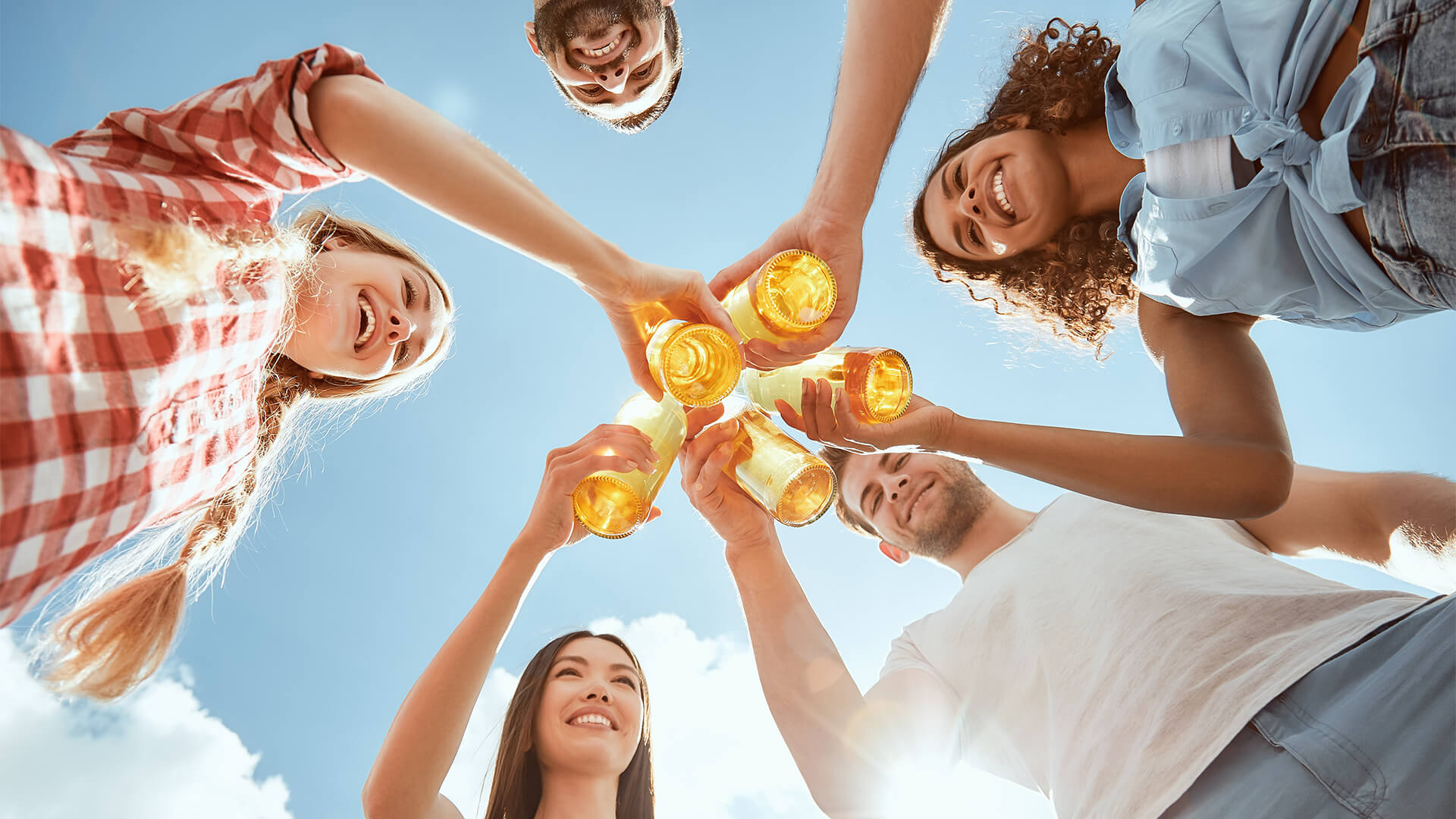It’s fair to say the UK enjoys an alcoholic beverage or two from time to time. From lagers to cocktails, the alcoholic drink industry continues to concoct a variety of drinks for us to try. However, the rise of the non-alcoholic drinks market has changed the face of the industry forever.
With an increasing number of people swapping their pints for a non-alcoholic one, the sale of non-alcoholic beer grew by 58 per cent between 2019 and 2020. As for alcohol, Beck’s reported a year-on-year decline in sales by 26 per cent in 2019, along with Carlsberg Pilsner declining by 11 per cent. So, why is the UK opting for a soft drink over a sore head? Here, we discuss how and why people’s perceptions of non-alcoholic drinks are changing. We also explore how brands are innovating their product line to satisfy consumer demand.
Beers and gins – minus the beer and gin
The alcoholic drinks market is booming with a variety of different beers and gins. Popular brands such as Bombay Sapphire, Gordon’s, and Beefeater continue to satisfy the nation’s taste buds with a variety of flavours, including elderflower, blood orange, rhubarb, and ginger.
However, with reports highlighting the decline in alcoholic drinks sales, some brands have started to present consumers with NOLO (no to low alcohol) alternatives. Three Spirit, Seedlip Spice, and Amplify Distilled Alcohol-Free Spirit are changing the gin market forever and offer a tasty alternative to those who enjoy the sociable aspect of going for drinks with friends but not the hangover the next day.
As for the sale of beers and lagers, some of the market’s most popular brands have introduced an alcohol-free line of beverages. Beck’s, for example, released Beck’s Blue, an alcoholic-free lager that is fat-free and just 53 calories per 275ml bottle. In more recent years, Heineken jumped on board the alcohol-free lager trend and launched Heineken 0.0 in 2017. For those who regularly opt for the alcohol-free option, you’ll know these drinks taste almost identical to their alcoholic alternatives. So, why not give them a go?
So, why is the alcohol-free market growing?
For a start, the UK is becoming a lot more health-conscious in general, a 2020 report finds. One way this is reflected is through the rise of veganism, with an increasing number of people swapping their diet to a vegan one. Other than the rise in ethical consumerism, reports find that one of the main reasons people are opting for a vegan diet is to ‘lead a healthier lifestyle’.
There is also a notable correlation between the rise of the alcohol-free market and the rapid growth of the health and wellness industry. Global Wellness Institute reports the wellness industry is worth a staggering £2.8 trillion worldwide, and GlobalData predicts that by 2022, people will spend on average £487 a year on health and wellness products.
With all things considered, it comes as no surprise that the UK’s perceptions of alcohol-free drinks are changing. Furthermore, the biggest dry January on record was reported in 2021, with 6.5 million people taking part in the UK. With the number of health-conscious consumers increasing year on year, it’s fair to say the NOLO trend isn’t going anywhere anytime soon.
The boom of kombucha
Other than the classic beer and gins that never fail to satisfy the nations taste buds, the rise of kombucha is causing waves through the drinks industry. Kombucha is a green or black tea drink that has strains of healthy bacteria added into it and is then left in room temperature conditions to ferment for several weeks. It is the fermentation process that is responsible for breaking down sugars into CO2 and alcohol. However, commercial kombucha teas contain less than 0.5% alcohol, therefore it is considered to be a low-to-no alcohol drink.
The kombucha market is predicted to grow by 20.64 per cent between 2019 and 2027.
Kombucha has many health benefits attached, providing a NOLO alcoholic drink to enjoy. The health benefits attached to this drink are caused by its high levels of probiotics, which are linked to improvements in digestion, reduced feeling of depression and anxiety, and weight loss. Furthermore, test-tube studies suggest there is a link between the antioxidants found in kombucha tea and reducing the growth and spread of multiple types of cancer.
With kombucha becoming increasingly popular, it is undeniable this has been driven by the rise of health-conscious consumers.
The return of the slushie
There is another non-alcoholic drink that is making fresh waves in the industry too. The global slush machine market is predicted to reach a value of $391.3 million by 2026. Typically, we associate slushies with going to the local shop as a child and pondering over which slush machine syrup we want. Nowadays, the industry offers so much more than just this. Some brands have even expanded their range to offer alcoholic-slush options.
Introducing frozen cocktails. These drinks present our favourite cocktails, including strawberry daiquiri, mojito, and blue lagoon, in the form of slushies. These chilled drinks can easily be made alcohol-free, so they are the perfect NOLO beverage choice. With trends predicting this industry to rise worldwide, perhaps NOLO slushies will be the next best thing to compete with the alcoholic drinks market.
Going for a catch-up drink with friends is an activity many of us in the UK enjoy doing. Despite day-drinking often being associated with alcohol consumption and headaches the next day, it doesn’t have to be! Instead, why not see what the non-alcoholic drinks menu has to offer?

















